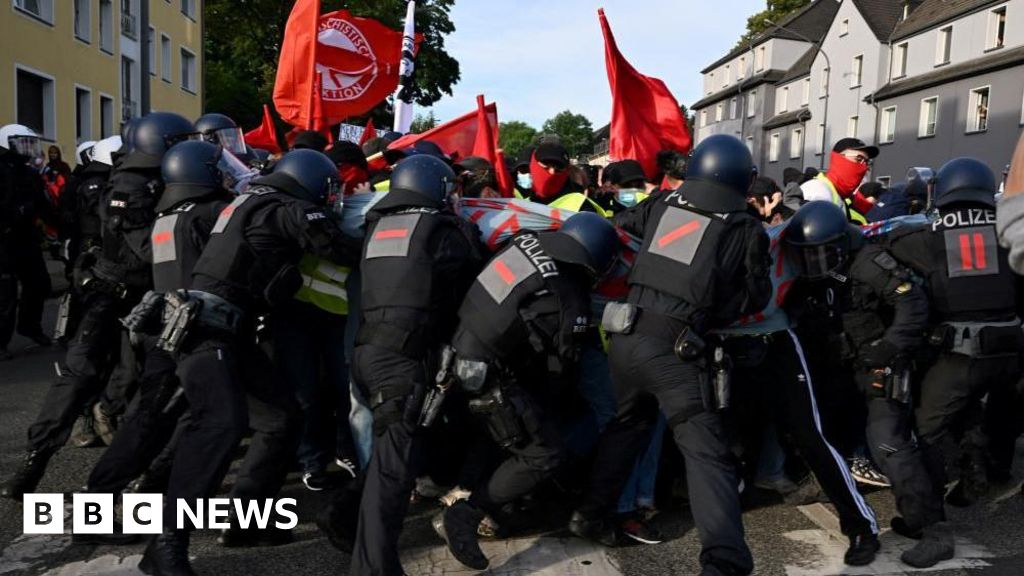World
Germany: AfD conference in Essen triggers violent protest clashes – BBC News

- Author, Sean Seddon
- Role, BBC News
Police and protesters have clashed outside the annual conference of the far-right Alternative for Germany (AfD) party.
Tens of thousands of people opposed to the AfD gathered in the city of Essen, local media reported, with police drafted in from around the country in a bid to prevent disorder.
Local police said officers had been injured in the violence, which began in the early hours of Saturday morning before the official demonstration had started.
The AfD’s conference comes weeks after it shocked Germany’s political establishment by coming second in European elections, winning 16% of all votes and beating the ruling centre-left party.
Disorder broke out at dawn on Saturday when a group of protesters attempted to reach the Grugahalle music venue where the meeting was due to be held.
Delegates were seen being ushered towards the venue by riot police after some protesters attempted to prevent the conference from beginning by blocking the road.
The local police force said it had used batons and tear gas to control crowds and had made “several” arrests as of midday.
Police in Essen reported further clashes later on Saturday and claimed officers had been attacked by masked protesters, though much of the demonstration was peaceful.
As many as 100,000 people were expected to take part in the demonstrations over the weekend, German broadcaster DW reported.
The two-day AfD event was set to involve around 600 delegates and began as planned at mid-morning on Saturday.
The party’s co-president Alice Weidel opened the meeting by telling delegates: “We are here and we will stay.” She was re-elected as co-leader alongside Tino Chrupalla.
Counter-demonstrators marched through Essen on Friday, the eve of the conference, and more demonstrations are expected on Sunday.
Authorities in Essen had attempted to block the AfD from meeting in the city but a court ruled the party should be allowed to.
The AfD, which primarily draws its support from regions in eastern Germany, came fourth in the European Union parliamentary elections in North-Rhine Westphalia, the state where Essen is located.
However, it performed ahead of expectations nationally despite a scandal-hit campaign, which included its lead candidate downplaying the crimes of the Nazis during World War Two.
AfD candidates secured 15 of Germany’s 96 seats in the parliament, coming second only to the country’s largest opposition party, the centre-right CDU/CSU. Chancellor Olaf Scholz’s centre-left SPD came third.







:max_bytes(150000):strip_icc()/roundup-writereditor-loved-deals-tout-f5de51f85de145b2b1eb99cdb7b6cb84.jpg)


